Tummy Tuck in Cape Town
Search and Compare the Best Clinics and Doctors at the Lowest Prices for Tummy Tuck in Cape Town

Find the best clinics for Tummy Tuck in Cape Town
With Medijump you can browse 6 facilities offering Tummy Tuck procedures in Cape Town. The cheapest price available is $4,668 in Johannesburg, Cape Town. And for the cheapest price globally, prices start from $76 in Czech Republic.
Tummy Tuck in South Africa
Price: $ 4,668
Tummy Tuck in Johannesburg
Price: $ 4,668
Czech Republic offers the best prices Worldwide
Price: $ 76
From 5 verified reviews
Fiona Marais, 20 September 2020
Great service, top quality treatments.
From 18 verified reviews
Juliettash Stadler, 05 May 2020
My Son was admitted with a very rare autoimmune illness in April this year. The care he was given was superb Prof Dheda, Prof Louw and their team of specialists covered every possibility , diagnosed efficiently and treated effectively. There was time taken to explain everything. The Hospital Matron made allowances for me to spend as much as possible time with my son and also allowed for frequent visits from close family. Mr Daniel Mathew the Hospital General manager is very approachable and interested . The staff was friendly and helpful. Basically every one from reception through admin to ICU was friendly and helpful. I Highly recommend this hospital
From 36 verified reviews
Kim Adams, 30 March 2020
Overall I had a good experience.
Dr Dawid Potgieter, can be found in Syfred Douglas St, Cape Town, South Africa and offers its patients Tummy Tuck procedures as well as 90 other procedures, across 1 different procedure categories. At present, there is no pricing information for Tummy Tuck procedures at Dr Dawid Potgieter. The pricing information is quite specialised, so it's only available on request, and the average price is around $4,830. The lead specialist at the Hospital will be carrying out all the treatments, and Dr Dawid Potgieter has several accreditations, including: HPCSA - Health Professions Council of South AfricaDepartment of Health, Western CapeFCS(SA) - Fellowship of the College of Surgeons of South Africa
From 16 verified reviews
Rebecca O'Connor, 23 September 2020
Dr. Gideon Maresky is amazing. I underwent otoplasty and rhinoplasty procedures and couldn't have asked for a better experience. Everything ran very smoothly.
Dr Susan F Johnson, can be found in Syfred Douglas St, Cape Town, South Africa and offers its patients Tummy Tuck procedures as well as 20 other procedures, across 1 different procedure categories. At present, there is no pricing information for Tummy Tuck procedures at Dr Susan F Johnson. The pricing information is quite specialised, so it's only available on request, and the average price is around $4,830. A small team of medical professionals undertake all procedures at the Hospital, with 2 in total, and Dr Susan F Johnson is accredited by just one known accreditations institute, HPCSA - Health Professions Council of South Africa
- Home
- South Africa
- Cape Town
Compare Before & After Photos of _procedure_photos.phpTummy Tuck
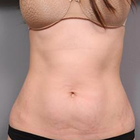

Front view
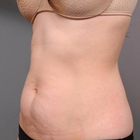

Half-side view
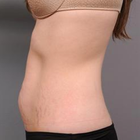
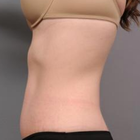
Full-side view
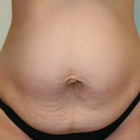
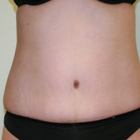
Front view
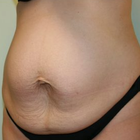
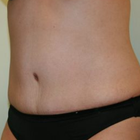
Half-side view
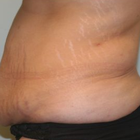
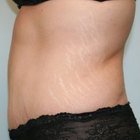
Full-side view


Full-side view
WHY US?
At Medijump, we're making medical easy. You can search, compare, discuss, and book your medical all in one place. We open the door to the best medical providers worldwide, saving you time and energy along the way, and it's all for FREE, no hidden fees, and no price markups guaranteed. So what are you waiting for?

Free

Best Price

Widest Selection

Risk-Free
What you need to know about Tummy Tuck in Cape Town

Also known as abdominoplasty, a tummy tuck is a surgical procedure to create a toned, firm, and flat abdomen by removing excess skin and fat. It has both cosmetic and medical benefits as it can tighten the abdominal muscles, restore the contour of the belly, improve posture, correct hernia, and reduce stress urinary incontinence.
A tummy tuck is suitable for people who want to remove excess skin due to a significant weight loss, aging, or pregnancy. However, not everyone can undergo the procedure. Your surgeon may not allow you to undergo the procedure if you plan to lose a significant amount of weight, you might want to get pregnant in the future, have a body mass index (BMI) that is greater than 30, smokes, have a severe chronic condition, and had an abdominal surgery that caused scar tissue in the past.
What is the cost of Tummy Tuck in Cape Town?
The price of a Tummy Tuck within Cape Town primarily hinges on several elements such as the operating doctor's expertise and credentials, hospital selection, and the intricacies of the operation. It could also fluctuate based on your distinct objectives and the degree of surgical intervention required. Ensure you clarify with your clinic if the cited price includes all facets of patient care, from the initial consultation to follow-up appointments.
Engaging in open conversations with your healthcare provider about the all-inclusive costs is essential. Typically, health insurance won't cover aesthetic surgeries like Tummy Tuck. However, they may partially or completely shoulder the cost if the procedure aims to address health issues such as hernias or skin conditions caused by surplus skin. Hence, a comprehensive discussion with your insurance provider about this matter is absolutely crucial.
What does a Tummy Tuck Procedure Involve?
A tummy tuck procedure will get rid of some of your excess skin and fat and will tighten the muscles in your abdominal wall.
What you need to understand is that a tummy tuck procedure is not an alternative for weight loss or an appropriate exercise program. While its results are significantly permanent, maintaining a positive outcome will require you to have a healthier lifestyle.
Furthermore, this type of treatment procedure is not the same as liposuction. A tummy tuck is a major surgery and not all individuals who wish to undergo it are good candidates. Generally speaking, this specific type of treatment procedure is for both men and women who are in good health. This is also suitable for women who have had more than one pregnancy, as well as both men and women who were formerly obese and still have excess fat and loose skin around their belly area.
You will be advised to postpone your plans for a tummy tuck procedure if you are:
- Planning to get pregnant - you may want to consider it once you’re done having children. A tummy tuck tightens your vertical muscles and future pregnancies may separate those muscles.
- Planning to lose weight - tummy tuck should be done after weight loss.
In preparation for a tummy tuck procedure, you will need to have a consultation with your surgeon. During your consultation, you will be asked about your expected result, goals. Furthermore, your surgeon will also discuss the following options:
- Partial abdominoplasty (Mini abdominoplasty) - this is for those people who have fat deposits below their navel area. This type of tummy tuck procedure usually lasts about two hours, depending on the case.
- Complete abdominoplasty - With this type of tummy tuck surgery, an incision is usually from hip bone to hip bone following the contouring of skin, tissue, and muscle as needed. It will also be required to move the patient’s belly button; patients must also have tube drainage under their skin for a few days.
Before your actual surgery, you may be asked to do the following:
- Quit smoking two weeks before and two weeks after your surgery.
- Eat well balanced complete meals.
- Stop taking certain medications before and after your surgery (prescription drugs, herbal medicines, and supplements)
A tummy tuck procedure typically lasts for about one to five hours, depending on your case. You will also be given general anesthesia while you undergo the surgery, meaning, you will be asleep during the whole procedure.
How Long Should You Stay in Cape Town?
Depending on the extent of your tummy tuck, you may need to stay in the hospital overnight or leave the hospital on the same day. However, since you have to attend follow-up checkups and allow your body to heal, you have to stay in Cape Town for at least 7 days following your discharge from the hospital. Your surgeon will check your overall health and remove the stitches during the follow-up checkups.
What's the Recovery Time for Tummy Tuck Procedures in Cape Town?
The recovery period after a tummy tuck depends on various factors, such as your general health, body weight, and age. In general, you may be able to go back to work (if your job does not require a lot of physical activities) and perform light exercises (such as walking) within 2 to 3 weeks after the surgery. You may need to wait for about 6 to 8 weeks until you can go back to your full normal routine, including performing vigorous activities. Still, your body will continue to heal for a few more months, so it’s better to take it easy until your surgeon allows you to return to your full activity.
What sort of Aftercare is Required for Tummy Tuck Procedures in Cape Town?
Your surgeon will give you detailed aftercare instructions. To avoid any complications, it is important that you follow them closely. The instructions may include restrictions (such as staying away from alcohol and nicotine), light exercises, and a healthy diet. Your surgeon will also tell you how to find an optimal resting position to make you comfortable during recovery. It is important to keep moving and doing some light exercise after the surgery to keep your blood flowing and reduce the risk of a blood clot.
To maintain the results of your tummy tuck, you need to maintain a well-balanced diet and exercise regularly, at least about 30 to 60 minutes every day. You should also limit your alcohol intake. Staying fit and in shape is the main key to keeping the results for a long time.
What's the Success Rate of Tummy Tuck Procedures in Cape Town?
Most patients who have had a tummy tuck reported that they achieve positive results.The Tummy Tuck has exhibited a noteworthy record of success, with a plethora of patients revealing remarkable enhancements in self-concept and perception of physical appearance following the procedure. Nonetheless, it's crucial to harbor genuine prospects and apprehend that the outcomes of the procedure may not always be as anticipated, as they hinge on personal factors such as body framework, genetic inclinations, and lifestyle habits such as exercise and alimentation.
The proficiency of the surgeon and the facilities of the clinic where the procedure transpires greatly influences the success rate. Another pivotal success determinant should be the satisfaction of the patients with the outcomes. Hence, patients are motivated to actively participate in the decision-making procedure, sharing their aspirations and receiving feedback on attainable results.
Only about 3.1% of people developed complications following the surgery.
Are there Alternatives to Tummy Tuck Procedures in Cape Town?
While there are non-surgical options that can be considered as an alternative to this type of treatment procedure, it's important to remember that these alternatives will not give you the same results as a tummy tuck. These non-surgical alternatives only give off limited amounts of skin tightening and a small amount of non-surgical fat reduction.
CoolSculpting - in this procedure, your fat cells will be frozen and eventually be eliminated by your body. You will usually see results after a few weeks and its final effects will be shown typically within three months.
SculpSure - unlike CoolSculpting, SculpSure makes use of laser beam light to kill your fat cells. During the procedure, the laser will be used to heat the fat cells to a point of irreversible damage. Once your fat cells are damaged, they will eventually be swept away by your body’s lymphatic system. This procedure is particularly great for the upper and lower abdominal area, as well as flanks. Little to no recovery time is needed, and full results can be seen within 12 weeks after the first treatment.
What are Potential Risks of Tummy Tuck?
Although the success rate is high, you need to be aware that the procedure does have some risks of complications. These include:
- Seroma (fluid accumulation beneath the skin)
- Unexpected scarring
- Poor wound healing
- Unexpected scarring
- Tissue damage or death
- Bleeding
- Infection
- An allergic reaction to anesthesia
- Changes in skin sensation
This is why following your surgeon’s aftercare instruction is very important, as it helps reduce the risk of complications.
Whilst the information presented here has been accurately sourced and verified by a medical professional for its accuracy, it is still advised to consult with your doctor before pursuing a medical treatment at one of the listed medical providers
No Time?
Tell us what you're looking for and we'll reachout to the top clinics all at once
Enquire Now

Popular Procedures in Cape Town
Prices Start From $111

Prices Start From $120

Prices Start From $931

Prices Start From $236

Recommended Medical Centers in Cape Town for Tummy Tuck

- Interpreter services
- Translation service
- Religious facilities
- Medical records transfer
- Medical travel insurance
- Health insurance coordination
- TV in the room
- Safe in the room
- Phone in the room
- Private rooms for patients available

- Interpreter services
- Translation service
- Religious facilities
- Medical records transfer
- Medical travel insurance
- Health insurance coordination
- TV in the room
- Safe in the room
- Phone in the room
- Private rooms for patients available

- Interpreter services
- Translation service
- Religious facilities
- Medical records transfer
- Medical travel insurance
- Health insurance coordination
- TV in the room
- Safe in the room
- Phone in the room
- Private rooms for patients available

- Interpreter services
- Translation service
- Religious facilities
- Medical records transfer
- Medical travel insurance
- Health insurance coordination
- TV in the room
- Safe in the room
- Phone in the room
- Private rooms for patients available

- Interpreter services
- Translation service
- Religious facilities
- Medical records transfer
- Medical travel insurance
- Health insurance coordination
- TV in the room
- Safe in the room
- Phone in the room
- Private rooms for patients available

- Interpreter services
- Translation service
- Religious facilities
- Medical records transfer
- Medical travel insurance
- Health insurance coordination
- TV in the room
- Safe in the room
- Phone in the room
- Private rooms for patients available

- Interpreter services
- Translation service
- Religious facilities
- Medical records transfer
- Medical travel insurance
- Health insurance coordination
- TV in the room
- Safe in the room
- Phone in the room
- Private rooms for patients available

- Interpreter services
- Translation service
- Religious facilities
- Medical records transfer
- Medical travel insurance
- Health insurance coordination
- TV in the room
- Safe in the room
- Phone in the room
- Private rooms for patients available

- Interpreter services
- Translation service
- Religious facilities
- Medical records transfer
- Medical travel insurance
- Health insurance coordination
- TV in the room
- Safe in the room
- Phone in the room
- Private rooms for patients available

- Interpreter services
- Translation service
- Religious facilities
- Medical records transfer
- Medical travel insurance
- Health insurance coordination
- TV in the room
- Safe in the room
- Phone in the room
- Private rooms for patients available
Tummy Tuck in and around Cape Town
About Cape Town
Cape Town is the legislative capital of South Africa and is also known as the Mother City. It is the oldest city in the country and home to the Parliament of South Africa and is a major destination for immigrants and expatriates, making it one of the most multicultural cities in the world. Located on the shore of Table Bay, the city is known for its harbor, natural setting, as well as famous attractions and many tourists, visit to enjoy Table Mountain and Cape Point.
Recently, tourists also come to the city for its medical tourism. Many groundbreaking procedures and medical research in South Africa, such as the world’s first penile transplant, have put Cape Town under the radar of medical tourists from all around the globe. Thanks to its world-class healthcare and world-renowned medical practitioners, more and more people now prefer Cape Town as their medical destination. The healthcare in the city is among the best on the African continent. Other reasons such as shorter waiting times for surgeries, state-of-the-art equipment, and affordable healthcare compared to Europe and the United States, and English-speaking doctors.
Popular Areas in Cape Town
Cape Town is a natural beauty that offers a wide range of things to do and see. From culture, food, art, to nature. Listed below are some of the more popular places in the city:
- Table Mountain is one of the New 7 Wonders of Nature and it is easy to see why. The iconic mountain makes an amazing backdrop to Cape Town. The level plateau is about 3 kilometers from side to side with remarkable cliffs on the edges. The peak offers an amazing view of the city. Tourists can choose to board the cable car or discover its beautiful nature by hiking.
- Cape of Good Hope is situated within the Table Mountain National Park. The area has a mix of bio-diversity and wonderful beauty that attracts thousands of tourists to visit. There are around 250 species of birds spotted in the area. Hiking and cycling through it is the best way to discover its true majesty. Tourists can picnic and birdwatch in isolated beaches.
- Kirstenbosch National Botanical Garden is one of the most incredible botanic gardens in the world. Nestled at the eastern foot of Table Mountain, it features a natural forest and fynbos flora and sprawls around 528 hectares. The garden displays a collection of diverse South African plants with seasonal festivals such as musical sunset concerts during summer and craft markets on the last Sunday of every month.
- Groot Constantia is the oldest wine-producing estate in South Africa, located in the suburb of Constantia. The estate consists of a museum, restaurants, tasting room, and cellars. The museum was built in Cape Dutch architecture style, further into the estate; tourists will find the free orientation center which provides an overview of Groot Constantia history. Tourists can also tour the original wine cellar, have a wine tasting, or a wine and chocolate pairing.
- Boulders Penguin Colony is located in Boulder Beach on the outskirts of Simon’s Town. The beach boasts fine white sand with pristine waters and endangered African penguin colonies. Tourists can set up camp, see the penguins up close, and even swim along with the magnificent aquatic birds. Observing the penguins socializing and playing in the waves is a perfect way to enjoy your travel in Cape Town.
Weather and Climate in Cape Town
Cape Town enjoys a warm Mediterranean climate. The summer is dry and warm, lasting from early December to March. The average maximum temperature during this season is around 26 °C, and the minimum is 16 °C. The Berg Wind that arrives from February to early March can make the city uncomfortably hot for a couple of weeks.
The winter starts in June and ends in August and the season is characterized by mild and wet weather. The city also experiences strong north-westerly winds during this season. The average temperature ranges between 8.5 °C at the lowest and 18 °C at the highest.
Getting Around in Cape Town
The primary airport that serves Cape Town is the Cape Town International Airport and it is the second busiest airport in South Africa and the fifth busiest in Africa. The airport serves direct domestic flights to major cities and several small centers in the country. It also connects the country with major cities in Africa, Europe, the Middle East, and Asia. It is the hub for South African Express as well as budget airlines such as Mango and FlySafair.
There are several types of taxis: the metered taxis, Rikkis Taxis, and minibus taxis. The metered taxis can be a little expensive but are usually comfortable. Tourists can order one via a phone call or from one of the city’s official taxi stands. Tourists should always choose reputable taxi companies such as Marine Taxi, Unicab, Excite, and SA Cab.
Rikkis Taxis are painted yellow and very popular and these taxis run on a fixed fare rather than metered, so they are a little more affordable than metered taxis and a good option if you are traveling on longer journeys. Other than the Rikkis Taxis, tourists can choose the minibus taxis which are perfect for adventurous foreign travelers. The minibus taxis can be found practically everywhere and are very cheap, however, you will need to know exactly where your destination is and tell the driver when to stop. Another travel option is the MyCiTi bus, a modernized and effective bus system.
Tourist Visas in Cape Town
There are more than 60 countries listed in the visa exemption agreements, which means the citizens of these countries can stay in South Africa for up to 90 days. Other countries not listed must obtain a valid visa to enter the country. A Medical Treatment Visa is available for medical tourists. Note that all visitors must hold a passport valid for at least 30 days after the expiration of their intended visit.
Additional Information
- Local Currency: South African Rand (ZAR) is the official currency and 1 USD converts to 14 ZAR.
- Money & Payments: Tourists can find ATMs almost everywhere around the city, but you should avoid ATMs in secluded places, especially at night. Credit cards are accepted in established restaurants, hotels, and shops. It is always better to carry some cash because smaller food places are cash-only. Tipping is expected here.
- Local Language: The most common languages in the city are English, Afrikaans, and Xhosa with Afrikaans as the most widely spoken home language.
- Local Culture and Religion: The population follows Christianity, Islam, Judaism, and several other religions.
- Public Holidays: There are 12 official public holidays in Cape Town, including New Year’s Day, Freedom Day, and Christmas.
Popular Searches
- Plastic Surgery in Thailand
- Dental Implants in Thailand
- Hair Transplant in Thailand
- Breast Augmentation Thailand
- Gastric Sleeve in Thailand
- Gender Reassignment Surgery in Thailand
- Laser Hair Removal in Bangkok
- Botox in Bangkok
- Dermatology in Bangkok
- Breast Augmentation in Bangkok
- Coolsculpting in Bangkok
- Veneers in Turkey
- Hair Transplant in Turkey
- Rhinoplasty in Turkey
- Stem Cell Therapy in Mexico
- Rhinoplasty in Mexico
- Liposuction in Mexico
- Coolsculpting in Tijuana
- Rhinoplasty in Korea
- Scar Removal in Korea
- Gastric Sleeve in Turkey
- Bone Marrow Transplant in India
- Invisalign in Malaysia
- Plastic Surgery in the Dominican Republic
- Tummy Tuck in the Dominican Republic
- Plastic and Cosmetic Surgery in Poland
- Rhinoplasty in Poland
- Hair Implant in Poland
- Dental Implants in Poland
- IVF in Turkey




